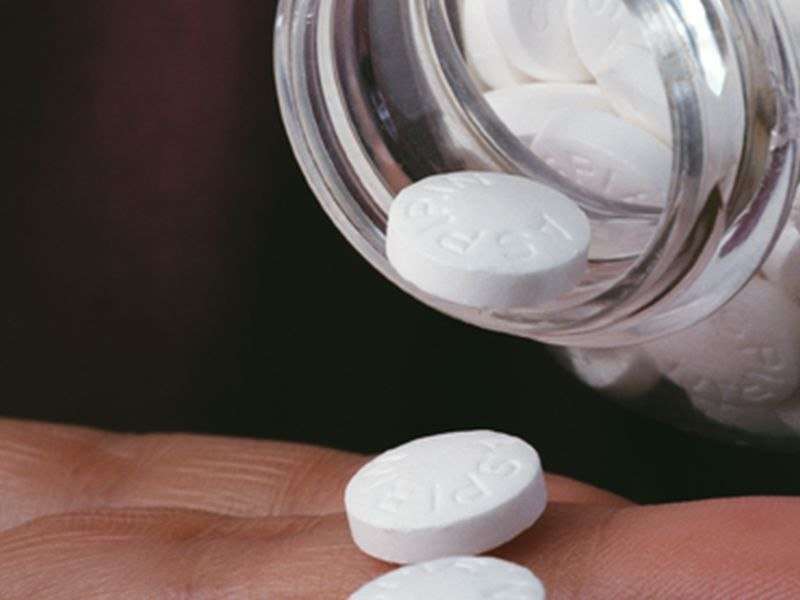(HealthDay)—Each year, millions of American heart patients go "under the knife" for various kinds of surgery. Often they're told to take a low-dose aspirin, to help lower their odds for a post-op blood clot.
But does that practice reduce the risk of additional heart problems?
A new study says yes. Giving low-dose aspirin after surgeries unrelated to heart problems—things like knee replacements, cancer surgeries or a myriad of other operations—reduces the risk of heart attack and death in people who've previously had artery-opening angioplasty.
The new study was led by Dr. P.J. Devereaux, of McMaster University in London, Ontario, Canada. The team pointed out that the safety of post-op aspirin was cast into doubt following the results of an earlier clinical trial of more than 10,000 people who received low-dose aspirin after a non-cardiac surgery.
That trial found that low-dose aspirin after such a surgery did not prevent a heart attack or death, but it did increase the risk of major bleeding for patients.
But Devereaux's team noted that a subset of patients who already had heart disease—as evidenced by prior angioplasties—were not looked at separately.
That's what the authors of this new study did, focusing on the 470 patients who had previously undergone angioplasty.
In these patients, use of low-dose aspirin after non-cardiac surgery did cut their risk for nonfatal heart attack and death, Devereaux's group concluded.
In fact, compared to similar patients who didn't get post-surgery aspirin, the risk for heart attack and/or death fell by half.
However, the risk of major bleeding in patients who took low-dose aspirin remained unclear, according to the study published Nov. 14 in the Annals of Internal Medicine.
One heart specialist called the findings "terrific and important."
If these findings are replicated in a larger, well-designed trial, "we may in fact be able to prevent significant number of cardiovascular illnesses and deaths," said Dr. Maja Zaric, an interventional cardiologist at Lenox Hill Hospital in New York City.
Dr. Avneet Singh is an interventional cardiologist at Northwell Health's Sandra Atlas Bass Heart Hospital in Manhasset, N.Y. He noted that the use of low-dose aspirin is already "mandatory" for patients who've had certain heart surgeries.
Also, "it's been seen that those patients who have prior stents tend to have higher risk of heart attacks at the time of undergoing other surgeries—and aspirin may reduce this risk," Singh added.
The new study confirms a "clear benefit" to this strategy, he said, and should influence physician guidelines going forward.
More information: Maja Zaric, M.D., interventional cardiologist, Lenox Hill Hospital, New York City; Avneet Singh, M.D., interventional cardiologist, Northwell Health's Sandra Atlas Bass Heart Hospital, Manhasset, N.Y.; Annals of Internal Medicine, news release, Nov. 13, 2017
The American College of Surgeons outlines how to prepare for surgery and recovery.
Journal information: Annals of Internal Medicine
Copyright © 2017 HealthDay. All rights reserved.






















